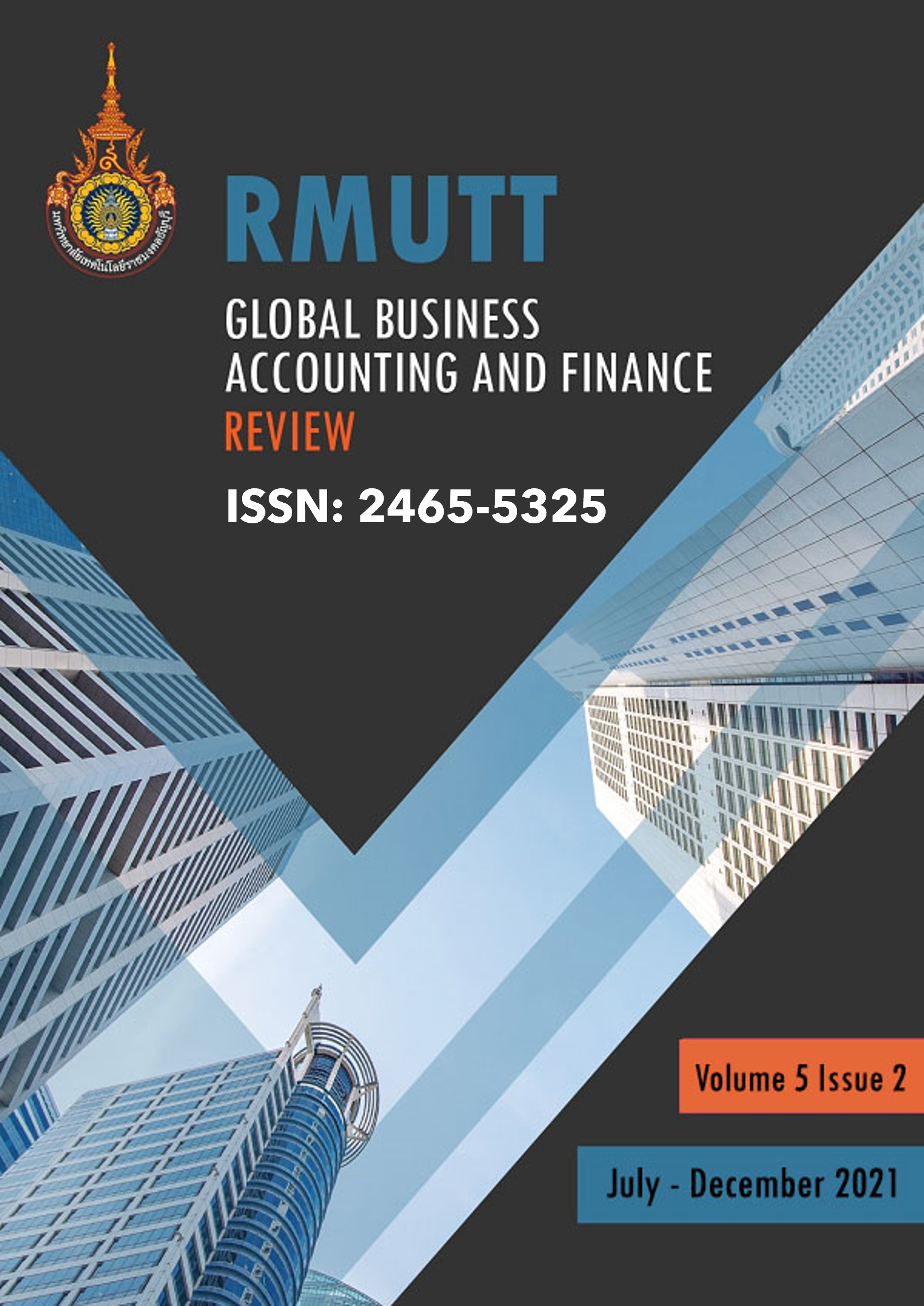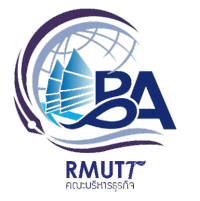LEVERAGING SMART FARMERS’ INCOME THROUGH MARKETING MANAGEMENT OF SAFE VEGETABLES IN NAKHON PATHOM PROVINCE
Keywords:
Smart Farmers, Multi-Channel Marketing, Marketing ManagementAbstract
The objective of this research was to study smart farmers’ income through marketing management of safe vegetables in Nakhon Pathom Province. The data was collected from 3 operators and 750 customers who bought safe vegetables via an electronic commerce system. The research results revealed that: 1) The decision made to buy the safe vegetable through multi-channel marketing stems from the combined influence between the e-marketing mix and technology adoption with statistical significance. 2) In order to deliver to consumers in a timely manner, a safe vegetable delivery system and standardized packaging for safe vegetable delivery should focus on maintaining freshness, cleanliness, and product quality. 3) The development of a safe vegetable traceability system among smart farmers in Nakhon Pathom Province must focus on making QR code to provide complete information at every step from upstream to downstream of the cultivation process, maintenance, and harvesting, ready to deliver to consumers. 4) Online marketing channels will reduce the number of middlemen while increasing the value of safe products. For offline marketing, farmers sell products in the market by themselves. The emphasis should be placed in the form of contract farming. Furthermore, 5) the proactive marketing media public relations strategy for safe vegetables in Nakhon Pathom Province should focus on the creation of brand communication on the safe vegetables to be recognized, remembered, and trusted.
References
Anuchit Thiangtham. (2002). Consumer Behaviors. Bangkok: Amber Advertising and Interior.
Angeline, C. (2012). Online Consumer Behavior: Theory and Research in Social Media, Advertising, by Taylor and Francis Group, LLC. In USA. Version Date: 20120323.
Baran, J. R. Galka, J. R. & Struk, P.D. (2008). Principles of Customer Relationship Management. U.S.A.: Thomson South-Western.
Chalermchon Waisayadamrong. (2006). The Global Traceability Standard. Asia Pacific Food Industry Thailand Journal, 3, 42-45.
Chaiyanan Nantaphan. (2016). Communication problems in society and organizations. Bangkok: Odeon Store.
Close, A. (2012). Online Consumer Behavior: Theory and Research in social media, Advertising, by Taylor and Francis Group, LLC. In USA
Cui, X., Zhu, T. & Chen, Y. (2018). Offline Versus Mobile Commerce: Implications for Inequality of Accessing Local Retail Infrastructure in Emerging. Retrieved from http://dx.doi.org/10.2139/ssrn.3263871
Department of International Trade Promotion. (2018). E-Commerce business is booming! Logistics Express is growing!. Retrieved from http://www.tradelogistics.go.th/%E-Commerce business boom!
Ecommerce Platforms. (2014). What is shipping? What does shipping mean?. Retrieved from https://ecommerce-platforms.com/glossary/shipping.
FAO. (2004). Participatory communication strategy design: A handbook. Rome: Food and Agriculture Organization of the United Nations.
FAO. (2014b). Communication for Rural Development Sourcebook. Rome: FAO.
FAO. (2014c). Communication for rural development: guidelines for planning and project formulation. N.P.: FAO.
FAO. (2015). Planning communication for agricultural Disaster Risk Management: A field guide. Rome: FAO.
Gilmore, A., Gallagher, D. & Henry, S. (2007). E-marketing and SMEs: Operational lessons for the future. European Business Review, 19(3), 234-247.
IFAD. (2010). Participatory mapping and communication: A guide to developing a participatory communication strategy to support participatory mapping. Peru: The International Fund for Agricultural Development (IFAD).
Kanchanik Kamnerdpetch. (2012). 3 G (Green) towards a sustainable future. BAAC Research and Development Journal, 1(4), 113-139.
Kerin, A.R., Hartley, W.S. & Rudelius, W. (2007). Marketing the Core. (2nd ed.) U.S.A.: Prentice-Hall.
Kushwaha, T. & Shankar, V. (2012). How Valuable are Multichannel Customers? The Moderating Effects of Product Category on the Relationship between Channel Preference and Monetary Value. UNC Kenan-Flagler Research Paper No. 2013-8. Retrieved from http://dx.doi.org/10.2139/ssrn.2056379
Kwon W.S. & Lenno, S.J. (2009). Reciprocal Effects Between Multichannel Retailers’ Offline and Online Brand Images. Journal of Retailing, 85(3), 376-390.
Netway. (2021). Omni-Channel for attracting customers. Retrieved from https://netway.co.th/kb/blog/zendesk/omni-channel-ผสานทุกช่องทางธุรกิจ-พิชิตใจลูกค้า#:~:text=Omni-Channel%20คือ%20การตลาด,เช่น%20มือถือ%20คอมพิวเตอร์%20สื่อ
Prachachat Business. (2010). Date retrieved on 15th September, 2019. Retrieved from https://www.prachachat.net/news_detail.php?newsid=1250076604.
Ruthaichanok Jingjit. (2013). Insight into “Smart Farmer”, just a new concept or it will change the face of Thai agriculture. Retrieved from http://www.tpso.moc.go.th/sites/default/files/1074-img.pdf.
Schwagele, F. (2005). Traceability from a European perspective. Journal Meat Sci, 71, 164-173.
Simmons, G., Thomas, B., & Truong, Y. (2010). Managing i-branding to create brand equity. European Journal of Marketing, 44(9/10), 1260-1285.
Soratham Kettaphan. (2017). Development of Recording and Traceability System for Organic Farming Process with PGS system. Master’s thesis, Thammasat University, Pathum Thani.
Tufte, T. & Mefalopulos, P. (2009). Participatory communication: a practical guide. Washington: The World Bank.
Withoon Panyakul & Chaiwat Kongsom. (2015). Project to study and prepare information on the situation of production and marketing of organic agricultural products. Nonthaburi: Sukhothai Thammathirat Open University and the Earth Net Foundation.
Worachonok Tengwongwattana. (2015). Service quality, price conscious, brand image and word of mouth affect decision choose to use parcel delivery services of private companies in Thailand for consumers in Bangkok. (Independent research, Master of Business Administration, Graduate School Bangkok University).









